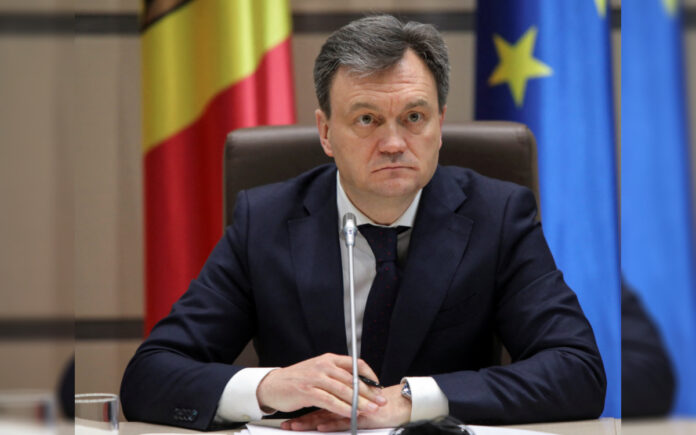Chișinău: Moldovan Prime Minister Dorin Recean warned of a security crisis on Friday after the separatist, pro-Moscow region of Transdniestria faced severe consequences due to a cut-off of Russian gas supplies. This disruption led to factory closures, restrictions on central heating, and rolling power blackouts in the region.
The halt in Russian gas flows to central and eastern Europe occurred on New Year’s Day when a transit agreement between Ukraine and Russia expired. Kyiv refused to continue any gas transactions with Moscow, further exacerbating the situation. Recean acknowledged that Moldova would manage its energy needs through domestic production and imports, but emphasized that the Transdniestria region had been hit particularly hard due to its dependence on Moscow.
Moldova faces a security crisis, Prime Minister Dorin Recean said after its separatist pro-Moscow Transdniestria region, cut off from supplies of Russian gas, closed factories, restricted central heating and imposed rolling power blackouts https://t.co/xR27Hx8NWe pic.twitter.com/0QQBfk00SS
— Reuters (@Reuters) January 4, 2025
“By jeopardising the future of the protectorate it has backed for three decades in an effort to destabilise Moldova, Russia is revealing the inevitable outcome for all its allies – betrayal and isolation,” Recean stated. “We treat this as a security crisis aimed at enabling the return of pro-Russian forces to power in Moldova and weaponising our territory against Ukraine, with whom we share a 1,200 km (745-mile) border.”
On the same day, the official Telegram news channel of separatist Transdniestria reported that rolling power cuts had been implemented, particularly affecting districts between 6 p.m. and 10 p.m. The Ministry of Economic Development in Transdniestria attributed the cuts to excessive energy consumption during peak hours. Additionally, the region’s residents had already faced the loss of hot water and central heating, with only food factories operating.
Transdniestria’s self-styled president, Vadim Krasnoselsky, had earlier acknowledged the inevitability of power cuts, stating that the region had enough gas reserves to cover a limited period of usage—10 days for the north and twice as long for the south.
Also Read | Southeast Australia Faces Intense Heatwave, Bushfire Threats
The Russian government has denied using gas supplies as leverage against Moldova, blaming Kyiv for the cessation of the gas transit agreement. On December 28, Russian gas giant Gazprom announced it would suspend exports to Moldova from January 1 due to alleged unpaid debts of $709 million, a figure disputed by Moldova, which states that the outstanding amount is just $8.6 million.
Moldova, a country of about 2.5 million people, has drawn international attention since the Russian invasion of Ukraine, given its geopolitical position and growing tensions between Moscow and the West. Moldova’s pro-European President Maia Sandu, re-elected for a second term, has vowed to push forward with reforms and accelerate democratization in the country. Moldova also plans to hold a parliamentary election this summer.
Also Read | In Just 6 Weeks: Ukrainian Engineers Craft Vital Armor for Patriot Air Defense
Transdniestria, which split from Moldova in the 1990s and maintains close ties with Russia, had relied on Russian gas delivered via Ukraine. Meanwhile, Moldova used to receive much of its electricity from Transdniestria, but with Ukraine halting Russian gas transit, Moldova has shifted to alternative energy solutions, including domestic production and electricity imports from Romania.
Despite the challenges, the Moldovan government is committed to supporting the breakaway region. “Alternative energy solutions, such as biomass systems, generators, humanitarian aid, and essential medical supplies, are ready for delivery should the breakaway leadership accept the support,” a government statement said. However, Moldova’s national gas company, Moldovagaz, reported that Transdniestria had rejected an offer to purchase gas from European countries, as the region still hopes for the resumption of Russian gas supplies, despite the higher cost.



